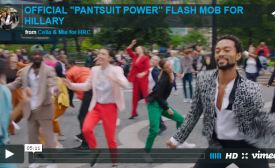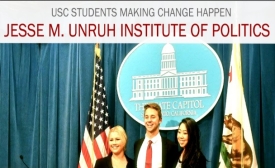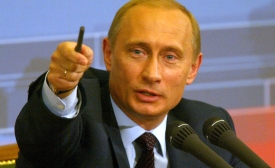2016 presidential campaign
In November, 2016 Oxford Dictionaries proclaimed “post-truth” the word of the year. The choice was obviously a reflection of two important political campaigns: Brexit and the US Presidential elections. In both campaigns truth became subservient to political gain. The distinction between fact and fiction eroded as fake news spread globally through social media sites. However, Oxford Dictionaries’ choice was, to a certain extent, a publicity stunt in its own right.
When Donald Trump repeatedly claims the election is “rigged,” it doesn’t just undermine voter confidence at home. [...] The campaign also acts as a snapshot of American democracy. According to political scientist Joseph Nye, America’s soft power – its ability to persuade foreign leaders and exert influence abroad – partly depends on how the rest of world interprets our political process, values and outcomes.
While the days of its worst behavior are long behind it, the United States does have a well-documented history of interfering and sometimes interrupting the workings of democracies elsewhere. It has occupied and intervened militarily in a whole swath of countries in the Caribbean and Latin America and fomented coups against democratically elected populists.

How a couple of choreographers crowdsourced a flashmob to rally voters.
There’s never been a US presidential candidate better known to China’s 1.3 billion people than Hillary Clinton. Thanks to more than two decades of high-profile engagement with the country, as first lady, US senator, secretary of state and two-time presidential candidate, Clinton is also a controversial figure in China, with that familiarity generating occasional gusts of contempt.


Putin is really into Donald Trump.







